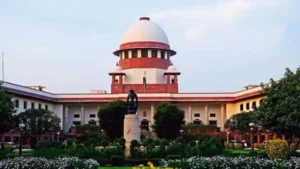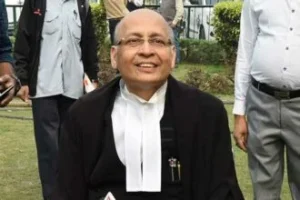On Monday, the Supreme Court questioned the Delhi Chief Minister and Aam Aadmi Party(AAP) leader Arvind Kejriwal for his defiance of his arrest and his refusal to give any kind of statement regarding the liquor case scam to the Enforcement Directorate(ED).
Justice Sanjiv Khanna who is part of the two-bench committee in the case stated that ‘If you do not go for recording of Section 50 statements, you cannot take the defence that his statement was not recorded.’

What is Section 50 of the PMLA?
The Section 50 of the PMLA(Prevention of Money Laundering Act) connects with the ED authorities and officers to issue requests and produce paper. evidence and other items related to the case.
In this appeal, the Delhi CM has disagreed that his arrest is illicit and so is his detention. The Delhi CM also gave the reason behind his arrest as a political connection and his arrest is almost relevant since general elections are coming up. His plea stated that ‘The attempt is to decimate a political party and topple an elected government of the NCT of Delhi.’

Kejriwal’s Council Statement to the Supreme Court
Arvind Kejriwal‘s council Abhishek Manu Singhvi stated to the court that ‘one can be arrested only on evidence of guilt, not mere suspicion. “This is also the threshold in Section 45 PMLA (law against money laundering).’ His statement reminded that the investigative agency did not recode the statement of the Delhi Chief Minister(CM).
While the bench replied to the statement that ‘Are you not contradicting yourself by saying that his statements under Section 50 of the Prevention of Money Laundering Act (PMLA) were not recorded? You don’t appear on summons for recording of statements under Section 50 and then you say it was not recorded.’ By saying this statement, the Supreme Court bench protected the Enforcement Directorate(ED) officers that ‘What could they do if Mr Kejriwal didn’t appear despite repeated summons.’
Singhvi responded to the statement that ‘Non-recording of Section 50 statements is not a defence to arrest me for reasons of believing there is guilt.’ He futher added that ‘I am saying other materials also do not establish my guilt. The ED came to my house to arrest me. Then why can’t ED record my statement under Section 50 at my house?’.

Kejriwal’s Council Criticises Enforcement Directorate(ED)
Regarding this case, the Enforcement Directorate(ED) officials stated in an affidavit to the court that ‘The Chief Minister has skipped summons for questioning nine times.’
Abhishek Manu Singhvi stated to the court criticizing the ED by saying that ‘Today, you cannot say that we will arrest you because you did not appear on summons. Can you say that since you did not cooperate, you will be arrested? Non-cooperation cannot be a ground for criminality or grounds of arrest. This court held last year that non-cooperation cannot be a ground of arrest under the PMLA.’
He also informed to the Supreme Court that his client Mr. Arvind Kejriwal last year even attended all the summonings by the Central Bureau of Investigation(CBI) where they questioned him and he answered all their queries.
The senior advocate stated ‘the chief minister does not have any immunity from prosecution and asked if he has less rights than a common citizen.’

ED On Arvind Kejriwal
The Enforcement Directorate(ED) already stated that ‘Mr Kejriwal was avoiding interrogation and while recording his statement under Section 17 of the PMLA, he was evasive and uncooperative.’
Since the AAP leader refused to attend any of the summonings by the ED, they had no other choice other than to arrest him which occurred on 21st April where he remained in the agency’s detention center until 1st April when he was ordered to be shifted to Tihar Jail under judicial custody.
The CBI(Central Bureau of Investigation) has stated that the ‘liquor companies were involved in framing of the Delhi excise policy of 2021-22 that was subsequently scrapped. The policy, which would have brought them a 12 per cent profit, was framed after receiving kickbacks from a liquor lobby it dubbed the South Group’. The ED also informed and reported that the payments were transfered.
The Supreme Court Bench on The Bail Application of Kejriwal
The bench stated that ‘In a normal case, a person upon arrest moves a bail application and the court based upon the case diary forms a prima facie opinion whether to grant him relief, as the charge sheet is filed after 60 or 90 days.’
The hearing of the case will continue on today.












